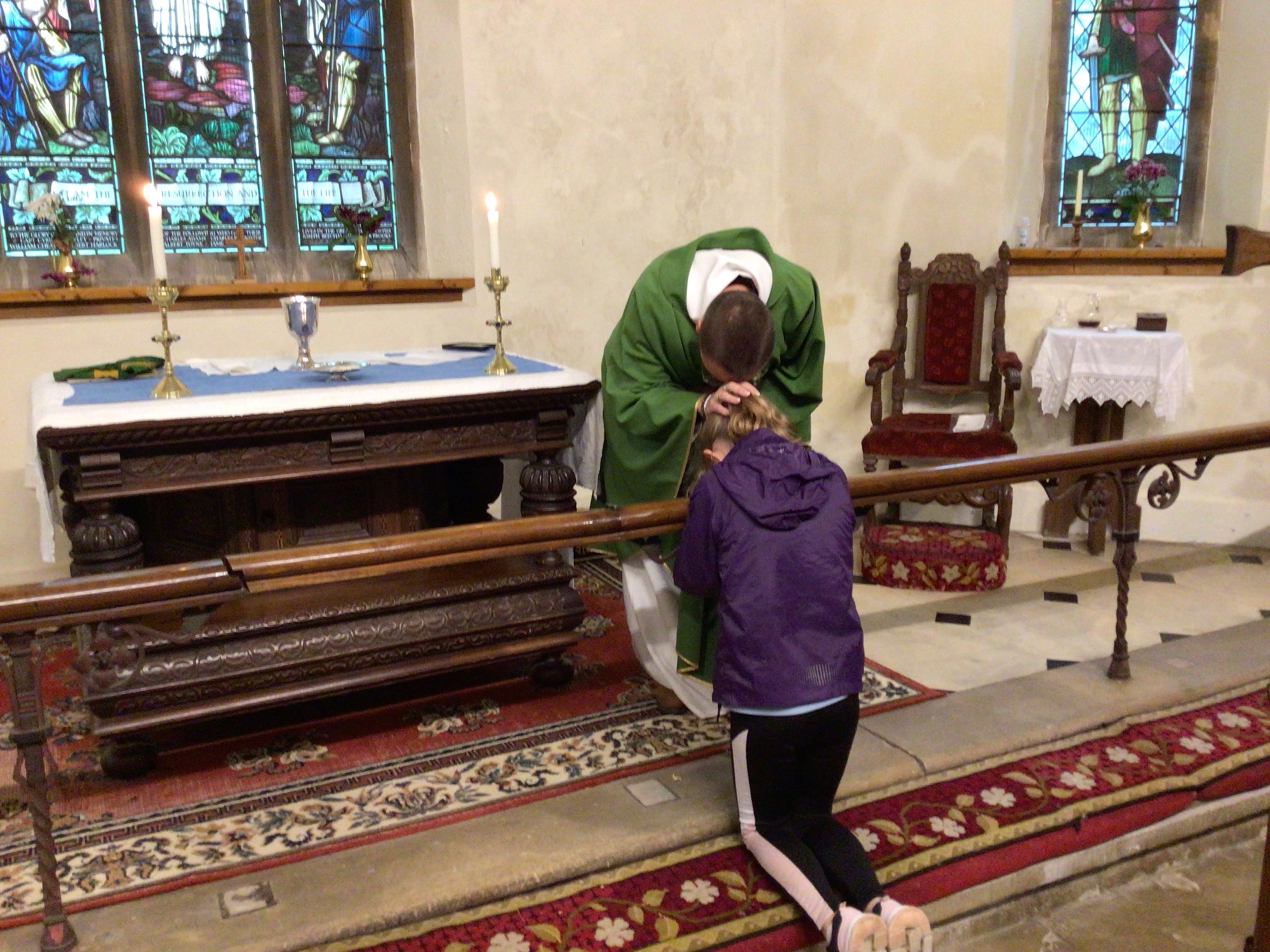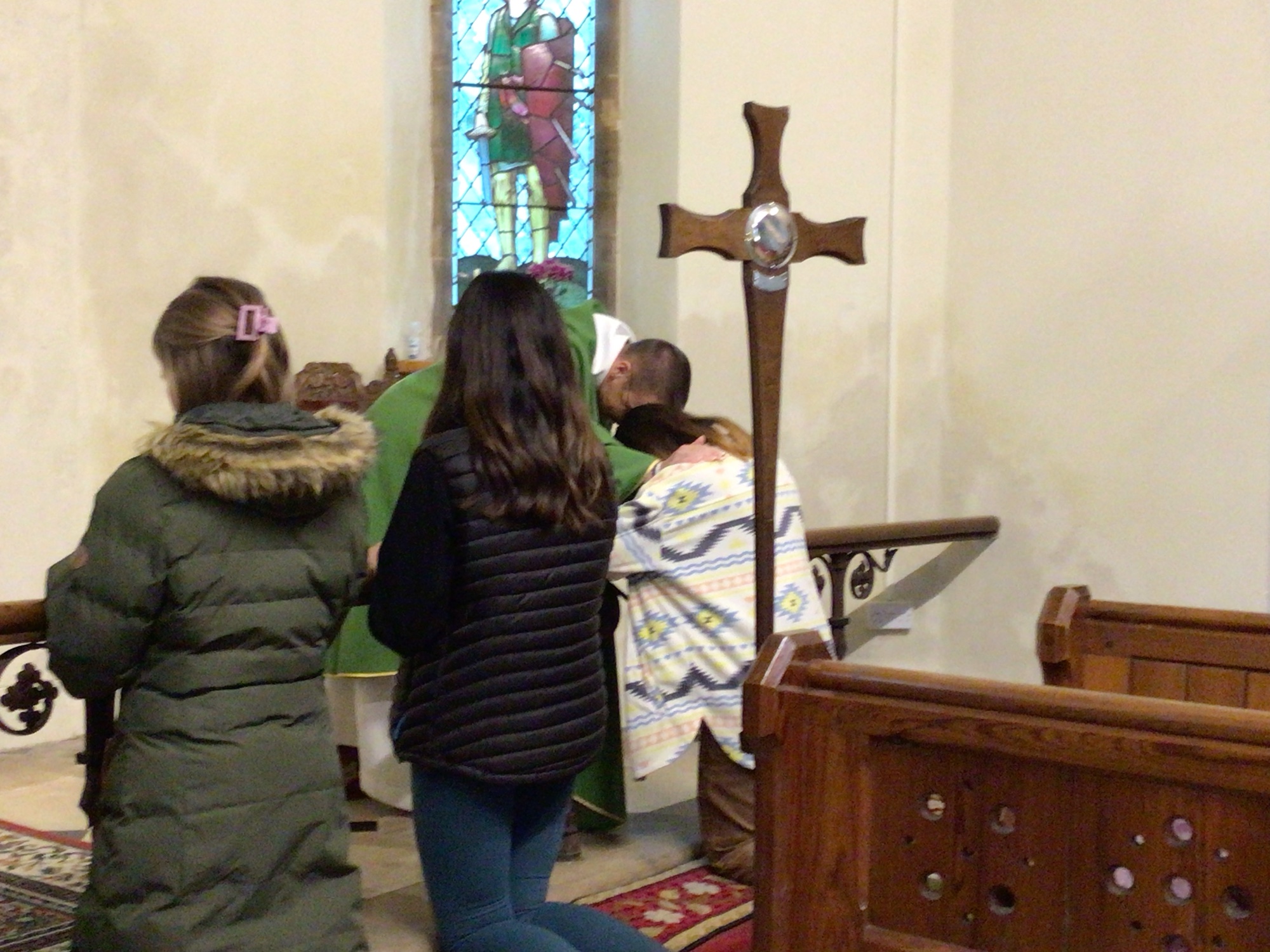Religious Education
Key Documents
RE Curriculum Overview with commentary
Lincolnshire Agreed Syllabus for RE
Subject Leader: Mrs Shawyer

Our small, inclusive and caring school provides an embedded family ethos. We strive to enthuse and inspire our pupils, challenging and supporting their growth into respectful; confident; independent; self-motivated and curious individuals.
We teach RE as a core part of our school curriculum in order to further develop our pupils’ religious literacy. We understand religious literacy to be:
“our pupils’ ability to hold balanced and well-informed conversations about religion and worldviews."
As a Church of England school, we recognise the core place that RE occupies as part of a broad and balanced curriculum.

Our Intent, Implementation and Impact
Intent
- Provide and encourage the opportunity for all children to have the knowledge and skills required to engage with theology.
- Provide children with the skills and knowledge to hold an informed and balanced conversation about their own and worldviews.
- Provide opportunity for children to develop their religious literacy, understanding various religions, including how books, scriptures, readings and other important means of communication are used to convey beliefs.
- To gain an understanding of views through a theological, philosophical and human/social science lense.
- For pupils to be able to make sense of religion and world views and begin to understand the complex world around them.
- To provide opportunity for appreciation of how religion plays an important role in the lives of some people.
- Develop the ability to make reasoned and informed judgements about religious and moral issues, with reference to the beliefs, teachings, practices, sources of authority and ways of living associated with the principle religions represented in the UK;
- To develop an ‘enquiry based approach’ to studying RE using the Statement of Entitlement to inform RE planning.
- Enhance their spiritual, moral, social and cultural development by:
- Considering the ‘big questions’ raised by human experience and reflecting on how religious and other traditions respond to them;
- Responding to such questions with reference to religious beliefs, teachings, practices, values and traditions, relating them to their own understanding and experience;
- Reflecting on their own beliefs, values and experiences in light of their study of religious and other traditions.
Implementation
- RE is valued the same as other core subjects.
- We follow a clearly sequenced and progressive curriculum based on the locally Agreed Syllabus for Lincolnshire (2018-2023) and Understanding Christianity.
- We ensure high quality teaching that is appropriately pitched to individuals. Teachers ensure that the learning activities employed in RE are differentiated to meet a variety of learning needs.
- RE is valued and included in the daily life of school, with links through Collective Worship and daily classroom prayers and Christian Values.
- Children are given opportunities to engage, enquire, explore, evaluate and express their ideas, knowledge and understanding of Christianity and other world religions. At KS1, the principal religions studied will be Christianity and Islam; at KS2, the principal religions studied will be Christianity and Islam, with additional units linked to Judaism and Hinduism.
- We have a succinct assessment system based on Understanding Christianity and the school’s assessment tracker.
- Regular worships and visits from local clergy help reinforce the Christian Values of the school, the school environment and help develop links with the local community.
- We actively seek to prepare our pupils for life in modern Britain. As such, we promote key British Values, including respect for and tolerance of different faiths and beliefs.
- We provide the minimum time of 36 hours per year for KS1 and 45 hours per year for KS2/KS3. This time is arranged in a range of ways, including discrete weekly lessons, blocked time and RE days/weeks.
Impact
- Children talk confidently about their own religious views and discuss their ideas with others.
- Children show their Christian Values in their everyday life.
- Children confidently apply their religious knowledge to other areas of learning.
- Children demonstrate an appreciation and respect of others views and world religions.
- Children are able to hold a balanced and informed conversation about their own and worldviews.
- Children are able to discuss and challenge key enquiry questions.
- Outcomes at the end of each key stage exemplify individual progress.
What do the children say about RE?
“I like RE because we learn about different religions. It’s important to hear the opinions of others.”
“I like furthering my knowledge from what I’ve already learnt. I like the different religions.”
“I like RE because you can learn about the beliefs of other people and understand them more.”
Lent workshops with Rev. Helen - March 23



Year 5 and 6 Holy Communion with parents/carers invited to St Mary's Church - Sep 23



Making Palm Crosses

Y5/6 Holy Communion with parents/carers invited - Sep 2024


There are no news articles at present.























